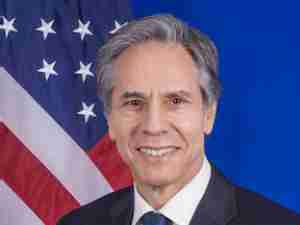Testimony is heating up for the pending bill mock-up and summer vote on the US-Central American and Dominican Republic Free Trade Agreement (CAFTA-DR). Testifying on April 28 before the House Energy and Commerce Subcommittee on Commerce, Trade and Consumer Protection, National Association of Manufacturers' (NAM) Vice President for International Economic Affairs Frank Vargo voiced his opinion that CAFTA-DR would be "an unambiguous winner for US manufacturing."
Vargo is NAM's top trade expert. NAM is a powerful Washington, DC trade association that consists of member companies and their subsidiaries, of which more than 80% are small manufacturers, plus 350 member associations in all 50 states.
According to Vargo, US manufacturers strongly support CAFTA-DR and see it as leveling the playing field by giving US producers the same access to CAFTA-DR markets as their producers enjoy in the US market.
"This agreement also strengthens the ability of US and Central American producers to compete against China and other Asian nations," Vargo said. "Without the agreement, Asian currency manipulations will continue to threaten the CAFTA-DR countries; apparel exports to the United States, for example. Those exports represent seven percent of the region's GDP and 550,000 jobs. If they're lost, economic recession in the region could drive existing US exports down by as much as $4 billion, affecting 48,000 US jobs, and political instability in our hemisphere could be exacerbated."
A big plus, if CAFTA-DR is passed by Congress, is that US manufactured goods exports to the six CAFTA-DR countries will become duty-free, while European and other competitors will still face tariffs and other trade barriers. As a direct result, US manufacturers stand to increase exports by $1 billion and create approximately 12,000 job opportunities for American workers.
"Thus, the total impact of CAFTA-DR on US exports could be as much as $5 billion and 60,000 related American jobs," Vargo said.
Turning to CAFTA-DR exports to the United States, Vargo reported that nearly 80% are already duty-free thanks to existing one-way market access programs. "The agreement has significant potential to maintain existing CAFTA-DR exports to the United States, but it won't likely generate significant new net manufactured goods exports to our already open market," he told lawmakers.
Vargo was particularly poignant in addressing expressed fears that CAFTA-DR will have a detrimental impact on the US economy, stating that the combined economies of Costa Rica, El Salvador, Guatemala, Honduras, Nicaragua and the Dominican Republic are only roughly the size of Sacramento, CA's economy.
Vargo was joined by Drew Greenblatt, owner of Marlin Steel Wire Products LLC in Baltimore, MD, which employs some 20 people who make wire baskets, shelves and hooks for Boeing, DuPont and Honeywell. Greenblatt cited onerous regulations that, "affect small manufacturers more than twice as much as larger manufacturers -- nearly $17,000 for firms with fewer than 20 employees versus $7,000 for firms with more than 500 employees," he said.
Among the burdens he outlined are limits on truckers' hours, which, he said, helps drive businesses overseas.








